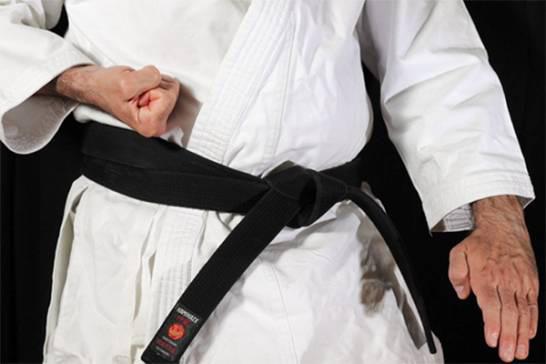
4 minute read
EL MATE Y EL KARATE KSN Renso Perez
The TRUE MEANING of the BLACK BELT…
In European history, and especially in English history, a man of great courage and dignity, who excelled both on the battlefield and in his social life, was awarded the title of knight. This designation implied that his recipient was a man of honor and also possessed great skill in combat. In Japan, this type of man was called Samurai, being the object of great attention and respect. At that time, both England and Japan were feudal states in which the knights and samurai were pure products indispensable to the social conditions in which they lived, a situation that does not exist today. However, the desire to reach a high level in a Martial Art, in self-discipline and in self-defense, still persists. Currently, the man strives in a Martial Art, trying to reach the black belt, as a result of an apprenticeship to fight. However, as he progresses in his training, he becomes more aware of a strong urge: that of molding himself, becoming a better person, not only possessing great combat ability, but also dignity and honor. (The goal is to be better than yesterday, not better than anyone else.) Traditionally, these have always been the goals of a student of Martial Arts. The black belt is a reward given to the current knight or modern samurai, who has sacrificed many hours disciplining his mind and exhausting his body, in an attempt to achieve the maximum possible physical and mental development. The black belt is the symbol of an expert. Initially, the grading system was established as a series of levels by which a student could assess his progress, and the first black belt achieved is known as Shodan, the first degree, the initial step of those levels. Shodan means that the student has mastered the fundamentals of the Art, and is now ready to receive more advanced training; if he continues to practice, he will be eligible for other dans, indicative of his progress. (The principle of understanding). This scale of values has proven its effectiveness as a great student motivator, but it has also caused some problems. In the first place, there is a great disparity of criteria internationally. A universal degree system should already be standardized, and in the same way that one centimeter is equal to
Advertisement


another centimeter, one system of dans should be the same as another. It is also necessary to understand that this scale of values consists of examining human reactions, and due to the differences between each person, it is difficult to establish unique rules.
Judo and Kendo have their international rules to evaluate, which is partly a product of their exclusively Japanese origin, and these rules have been born together with each of these Martial Arts. Karate, on the other hand, has several different schools, each of which has its own particular examination system. When Karate reached an international dimension, several countries welcomed different styles, each with its own rules, and this fact allowed unscrupulous individuals to create their own organizations, awarding black belts to unqualified students, who in turn they decided to open their own schools and hand out their own black belts. These same types of people also decided to promote themselves for financial gain. (McDojo) The end result is that many black belts set a bad example, also producing a bad image of the Art of Karate. Many people think that just as new evaluations are produced in the international currency market, there should be centers where the black belt is re-evaluated, despite the fact that the list of candidates would go through the roof. The Public is not aware of the differences between the various grading systems, and people are often duped into clubs where the black belt is awarded after a short period of training, for obvious commercial purposes. This attitude is not only dangerous for the student himself, but it degrades the quality of the entire Martial Art. In a serious club, you get a black belt with more than five years of constant and hard training every day, all week, and with competent instruction. Every karateka should know that the black belt is not a gift, but rather an objective and a symbol of making a great effort, within a grading system of the highest quality, from which the student and Karate in general benefit. This interpretation of the Danes should evoke a sense of pride in one who receives a Dan through rigorous training. The knights and samurai of old avoided any act that could tarnish or call into question their honor.
Do modern Sensei and black belts wish to have a different attitude than them, regarding their own honor? Are we really black belts in life? Are you the same Shodan when you don't have your belt on?







